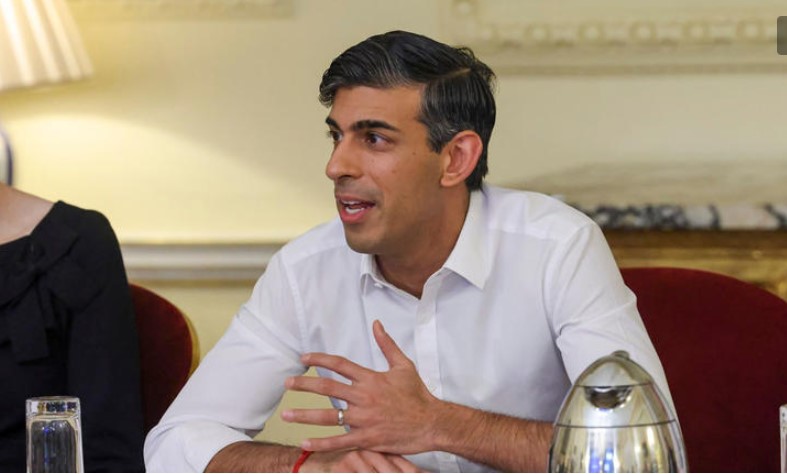Uncontrolled immigration risks unmanageable pressures on schools and hospitals, says Rishi Sunak

Rishi Sunak will warn that “uncontrolled” legal migration risks leading to unmanageable pressures on housing, schools and hospitals.
In an exclusive article for the Telegraph, the Prime Minister said he was committed to bringing down legal migration because when it was “too high and too fast” it was difficult for new migrants to integrate into communities.
It came as the Government announced on Tuesday that all foreign students except those doing postgraduate research will be barred from bringing family members to the UK from January next year, a move that could reduce net migration by as much as 150,000.
Figures to be published on Thursday by the Office for National Statistics (ONS) are expected to show net migration – the number entering minus those leaving – has hit a record high of between 700,000 and one million for last year. That is up from 504,000 in the year to June 2022 and nearly treble the pre-Brexit rate.
In his article, Mr Sunak said cracking down on migration was not anti-immigrant. He said it was a charge that could not be levelled at the UK given its “proud history” of taking refugees such as 174,000 Ukrainians.
But he said Britain could not have “uncontrolled legal migration.” “That’s unfair. It leads to unmanageable pressures on housing, schools and hospitals in many of our communities. And when it is too high and too fast, it can make it difficult for communities to integrate new arrivals,” he said.
Mr Sunak said Britain remained committed to its target of 600,000 students but this could not come at the expense of the Government’s manifesto pledge to lower net migration.
Ministers admitted on Tuesday net migration would only fall back to 2019 levels in the “medium term,” which the Home Office sets as between 18 months and five years.
It means the Government is likely to go into the next election – expected next year – having failed to meet its 2019 manifesto pledge to bring down net migration from 245,000 in that pre-pandemic year.
Mr Sunak has pledged to close loopholes that had fuelled a “staggering” eight-fold rise in the number of dependents brought into the UK by foreign students, up from from 16,000 to 135,788 since 2019.
From next January, only students who are doing PhDs or research-related masters degrees will be allowed to bring dependants to the UK. This will exclude nearly nine in 10 (88 per cent) of all foreign postgraduates from the right to bring in family members.
The Prime Minister promised a crackdown on “unscrupulous international student agents” blamed for fuelling the boom in dependants by promoting “inappropriate” applications as an immigration route rather than for education.
He accused some institutions of “selling immigration rather than education,” as he foreshadowed plans for postgraduate students at the top-performing universities to be allowed to bring in family members while those at lower-ranked institutions were not permitted to do so.
“We will also look to explore…a system which differentiates between the quality of institutions – so that in time we could still allow our very best and brightest students to bring some dependents when studying at our world leading universities while preventing institutions from selling immigration rather than education,” he said.
As part of the crackdown, students will be barred from switching to work visas before they have completed their studies in an attempt to stop them using university courses as a back-door route to employment in the UK.
There will also be a review which could increase the income levels required for foreign students for them and their dependants to come to the UK. Ministers are planning tougher enforcement and better communication of the immigration rules for students and skilled workers.
In a written statement, Suella Braverman said: “This package strikes the right balance between acting decisively on tackling net migration and protecting the economic benefits that students can bring to the UK. Now is the time for us to make these changes to ensure an impact on net migration as soon as possible.”







